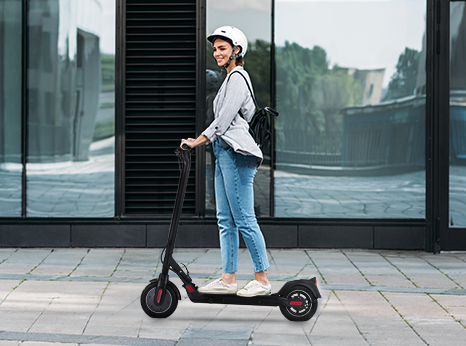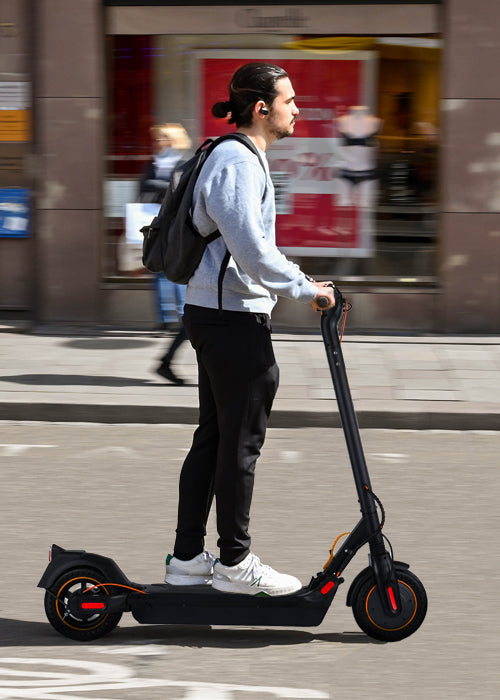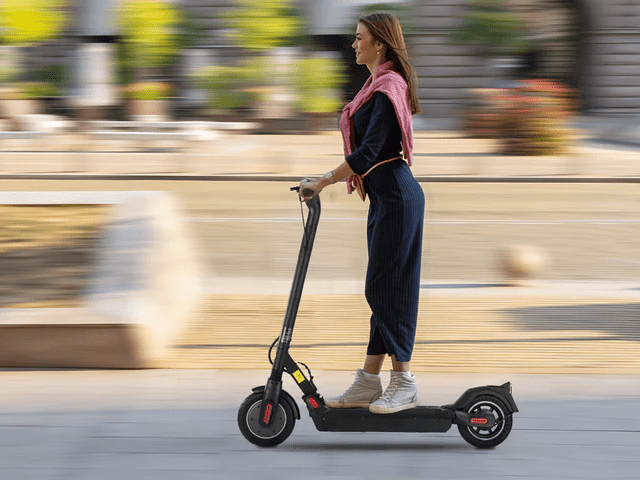Riding an electric bicycle (E-bike) is an enjoyable and practical way to get around. For beginners, understanding some key concepts can help ensure a safe and controlled ride. This guide covers the essentials of preparing for a ride, starting and stopping, navigating, riding on various terrains, safety tips, and troubleshooting.

Wear a Helmet When Riding Electric Bicycles
Always wear sports shoes and a helmet, as well as protective glasses, knee pads, elbow pads, and other protective gear when riding E-bikes. E-bikes are designed for one rider only, so avoid riding with another person on the same bike.
To mount the E-bike:
- Stand with both feet on the ground, placing the bike in front of you.
- Place one foot on the pedal, while keeping the other foot on the ground.
- Shift your weight onto the foot on the pedal, lean slightly forward, bend your knees, extend your arms, and maintain balance.
- Gently push off the ground with your back foot and swing it onto the other pedal. Begin to pedal and engage the electric motor to start moving.
To dismount the E-bike:
- Slow down and squeeze the brake gently.
-
Shift your weight onto your front foot and lower your back foot to the ground.
-
Once both feet are on the ground, stand up straight and turn off the electric motor.

Control and steering
- To start riding, slowly twist the throttle to engage the motor, adjusting the speed as needed.
- For turning, gently steer the handlebars while leaning your body into the turn.
Riding on different road surfaces
- Be mindful of road conditions; prefer flat roads and gentle slopes.
- Avoid riding on gravel or mud to prevent slipping.
- Do not ride through water, as it can cause electrical short circuits due to the low chassis of the E-bike.
- Avoid sharp braking due to the E-bike's relatively flexible frame, which can lead to instability and accidents.
- Refrain from riding in rain or snow, as slippery conditions increase the risk of accidents.

Electric scooter safety tips
- Always check the battery level, brakes, and braking system before riding.
- Ensure the motor feedback is functioning correctly and adjust the brake tension as needed.
- Adhere to the recommended weight limit to prevent straining the motor and to avoid safety risks.
- Address issues like slack brakes or low battery power promptly to ensure safe riding.
In addition to the convenience of transportation, E-bikes offer health benefits such as physical exercise, improved bone strength, vision correction, and posture improvement.
If the brake feels too loose, you can adjust the tightness using a screwdriver based on the bike's design.

Conclusion
E-bikes offer a new and eco-friendly mode of transportation with many advantages. However, it's important to be aware of the precautions during the riding process. Being well-prepared will ensure a safe and enjoyable riding experience.



Leave a comment
This site is protected by hCaptcha and the hCaptcha Privacy Policy and Terms of Service apply.